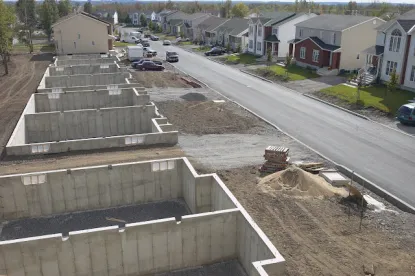Since the new legislative session convened in January, congressional leaders and President Trump have repeatedly highlighted the importance of passing legislation to repair our nation’s crumbling infrastructure. And while there is general bipartisan agreement on the scope of the problem, there remain significant differences between Democrats and Republicans over how much money the federal government should invest and how to pay for that investment.
Several weeks ago, President Trump met with Speaker Pelosi and Majority Leader Schumer to discuss the parameters of an infrastructure bill. Both sides announced an agreement for a $2 trillion bill, but discussions over how to pay for it were put off for several weeks. The President agreed with Democrats that a broad infrastructure package should include surface transportation as well as water and broadband. Subsequent to the meeting, House and Senate Republicans, as well as senior White House officials, expressed doubt over being able to find the means to pay for the bill.
Meanwhile, Democrats in the House of Representatives continue to advocate for a broad, bipartisan infrastructure bill with a variety of pay-fors that include raising the gas tax and other taxes, which is a nonstarter for most Republicans. As President Trump prepared to meet with the Democratic congressional leaders, Congresswoman Waters, Chair of the House Financial Services Committee, offered a draft legislative infrastructure proposal, the “Housing is Infrastructure Act of 2019,” focused on increased affordable housing. She also held a hearing titled, “Housing in America: Assessing the Infrastructure Needs of America’s Housing Stock.” In her opening remarks, Chairwoman Waters emphasized that “Congress must recognize that our nation’s infrastructure extends beyond making investments in our roads, bridges, ports, and airports. It also includes our nation’s affordable housing.” To address these concerns, her legislation would provide the following investments:
-
$1 billion to fully fund the backlog of capital needs for the Section 515 and 514 rural housing stock;
-
$5 billion to support mitigation efforts that can protect communities from future disasters and reduce post-disaster federal spending;
-
$5 billion for the Housing Trust Fund to support the creation of hundreds of thousands of new units of housing that would be affordable to the lowest income households;
-
$100 million to help low-income elderly households in rural areas age in place;
-
$1 billion for the Native American Housing Block Grant Program to address substandard housing conditions on tribal lands;
-
$10 billion for a CDBG set-aside to incentivize states and cities to eliminate impact fees and responsibly streamline the process for development of affordable housing; and
-
$70 billion to fully address the public housing capital backlog.
President Trump campaigned on investing in our nation’s infrastructure, and it has remained a stated priority for his administration. But given the negative reaction of many congressional Republicans to the $2 trillion price tag for a broad-based infrastructure bill, finding consensus may prove to be a difficult, if not impossible task for Congress and the President to accomplish before the 2020 election season begins to dominate the political agenda.




 />i
/>i
